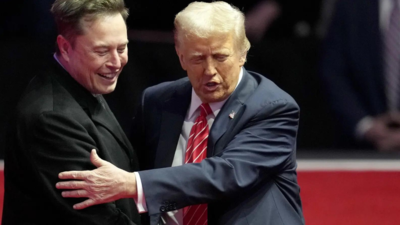
The United States Agency for International Development (USAID) is an independent agency of the US government responsible for administering civilian
foreign aid
and
development assistance
. Established in 1961 by President John F. Kennedy, USAID’s mission is to promote global development, humanitarian efforts, and democratic governance. It operates in over 100 countries, focusing on areas like global health, economic growth, disaster response, and democratic reforms.
USAID
has historically played a key role in responding to humanitarian crises, supporting economic development, and advancing US
foreign policy
interests through soft power.
Recently, the
Trump administration
has taken significant steps that raise concerns about the future of USAID. On January 20, 2025, President Donald Trump signed Executive Order 14169, titled "Reevaluating and Realigning United States Foreign Aid." This order imposed a 90-day pause on all US foreign development assistance programs to conduct a comprehensive review of their effectiveness and alignment with national interests. This suspension has affected a wide range of aid programs globally, leading to furloughs and layoffs among aid workers, both in the US and abroad. The move has disrupted projects related to health care, food security, and education in vulnerable regions.
The situation escalated further when the Trump administration placed two top USAID security officials, John Voorhees and his deputy Brian McGill, on leave after they refused to grant access to classified materials to inspection teams from the Department of
Government Efficiency
(DOGE), led by tech entrepreneur Elon Musk. The DOGE teams lacked the necessary security clearances to access the classified information, which included sensitive intelligence reports. Despite this, DOGE members eventually gained access, raising serious legal and ethical concerns about the handling of
national security
information.
Musk, who formed DOGE in cooperation with the Trump administration, has been vocal about his disdain for USAID, calling it a "criminal organization" and stating, “Time for it to die,” in a series of posts on X (formerly Twitter). Musk’s DOGE initiative is designed to streamline government operations, with a focus on firing federal workers, cutting programs, and slashing regulations. This has led to aggressive actions against various federal agencies, including a recent operation at the Treasury Department, where DOGE teams accessed sensitive Social Security and Medicare payment systems, prompting the resignation of a senior Treasury official.
USAID’s official website went offline without explanation, further fueling speculation about the agency’s future. Reports from within USAID indicate that staff have encountered outsiders with visitor badges—believed to be DOGE operatives—questioning employees about internal operations. The Trump administration’s crackdown has already led to the furlough of at least 56 senior USAID officials and the dismantling of many foreign aid programs.
The administration justifies these actions by claiming that much of USAID’s work is inefficient and misaligned with US interests. President Trump has publicly criticized the agency, stating, “It’s been run by a bunch of radical lunatics. And we’re getting them out.” Secretary of State Marco Rubio has supported the unprecedented freeze on foreign assistance, effectively shutting down USAID’s humanitarian, development, and security programs worldwide, which has resulted in thousands of layoffs among aid organizations.
The situation has drawn strong reactions from lawmakers. Senator Elizabeth Warren condemned the administration’s actions, accusing Trump of allowing Musk to access sensitive personal information and shut down critical government functions. “We must do everything in our power to push back and protect people from harm,” Warren stated.
As the situation unfolds, the future of USAID remains uncertain. The potential long-term consequences for US foreign policy, global humanitarian efforts, and national security are profound, raising questions about the balance between government efficiency and the safeguarding of democratic institutions and international aid commitments.
With inputs from agencies

 3 hours ago
2
3 hours ago
2









